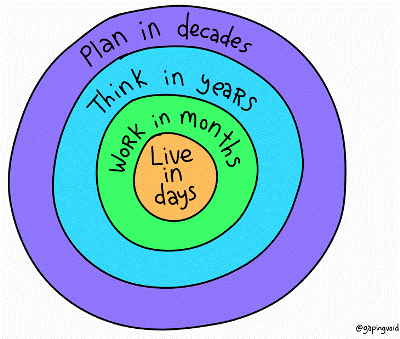Since the start of the Collaborative Age most of us have been giving out personal data in exchange for free services (like Gmail or Facebook where it serves to generate “targeted” advertisement). It’s already a lot of personal data, but it might become much more soon: we are increasingly wearing personal sensors that generate a lot more intimate data (location, movement, biological data etc.) and the Internet of Things will generate still more data about our personal environment. Should we continue to share it in exchange for more and more (annoying) targeted advertisement with the risk to really see our intimacy compromised or should we put a stop to this trend? Or are we happy to continue to fund free services with our personal data?
 It is a real debate that is unfolding under our eyes at the moment. Cory Doctorow who is clearly on the side of the defense of personal data, proposes in a recent column ‘What If People Were Sensors, Not Things to be Sensed?‘ to change the logic: let the world produce offers and let us choose and filter without giving out our data. Large internet conglomerates on the other hand, defend their interest to have our data (while pledging for confidentiality and anonymity). And when Microsoft when installing Windows 10 asks a lot of questions of what we accept about data sharing, it seems scary but well, at least they are asking for authorization… while others don’t!
It is a real debate that is unfolding under our eyes at the moment. Cory Doctorow who is clearly on the side of the defense of personal data, proposes in a recent column ‘What If People Were Sensors, Not Things to be Sensed?‘ to change the logic: let the world produce offers and let us choose and filter without giving out our data. Large internet conglomerates on the other hand, defend their interest to have our data (while pledging for confidentiality and anonymity). And when Microsoft when installing Windows 10 asks a lot of questions of what we accept about data sharing, it seems scary but well, at least they are asking for authorization… while others don’t!
It is a narrow edge that the internet giants are treading at the moment. Their business model is at stake. Give the consumer the impression that they know too much about their intimacy and they risk a backslash; allow too strict personal data laws to pass and their revenues will disappear. And at the end of this conundrum, the choice is ours, as it will shape the Collaborative Age to come.











